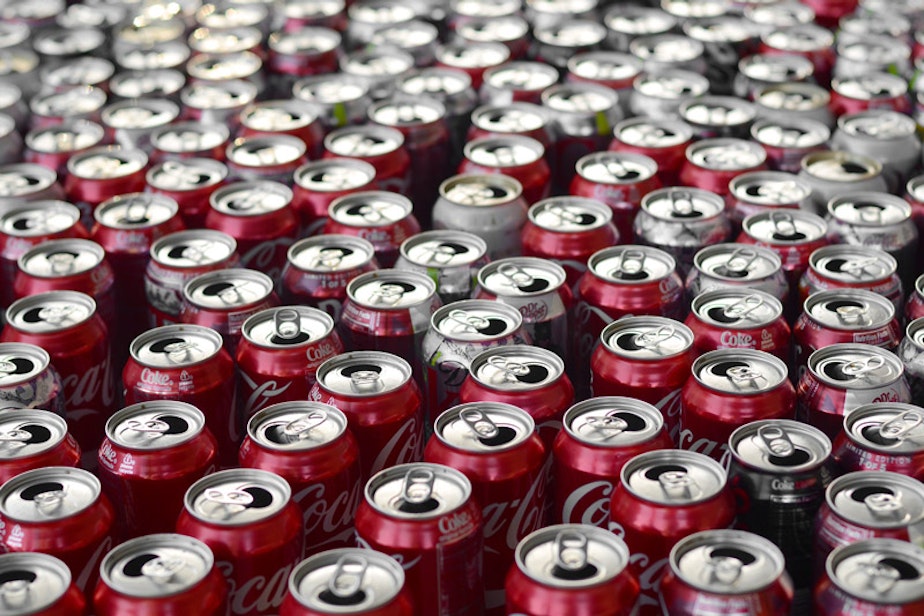Seattle pops open new controversy with soda tax

Seattle’s tax on sweetened beverages – known as the soda tax – has raised about $22 million in the year and a half. That’s about 50% more than predicted.
Now the city is making choices on how to spend the money, and it has run into controversy.
The city initially agreed to redirect the soda tack to nutrition and food access programs, as well as preschool and a scholarship program.
“We know that soda is marketed to low income communities and is consumed disproportionately by people in low income communities,” said Kevin Schofield, who manages and writes the local blog Seattle City Council Insight.
“The promise to those communities was if we’re going to institute a regressive tax, that money’s going to get invested back into those communities.”
Bill Radke interviews Kevin Schofield on 'The Record' June 19, 2019
Schofield said that about $5.7 million from the soda tax revenue has gone to homelessness programs that had been funded by one-time sources. He posits the reason is due to the failed employee hours tax, also known as the head tax or Amazon tax.
“When the city went through this debacle last year with the ‘head tax,’ which was supposed to fund a bunch of homelessness programs that were being funded by one-time sources, it sort of left a hole when the head tax got repealed,” he said.
City Councilmember Mike O’Brien countered that argument. He said the council had not considered the head tax when working up a draft budget.
Rather, they had hoped the head tax would fill a looming budget gap.
“There is a shortage of funding for this crisis around housing and homelessness, and we had hoped that an employee hours tax would fill that gap," O'Brien said. "When it didn’t, the mayor and the council turned to the sweetened beverage tax as a way to backfill it.”
Bill Radke interview City Councilmember Mike O'Brien on 'The Record' June 25, 2019.
O’Brien said that shouldn’t happen again, and that the Council should follow the recommendations from the soda tax committee, which includes public health workers and advocates.
O'Brien said the soda tax wasn't proposed to make more money for the city but because "we have a health crisis that is disproportionately falling on low income households and households of color."
Schofield said while the City Council likely had good intentions when passing the law, the soda tax contributes to Seattle being the most regressive tax system in the state, which also has the most regressive tax system in the country.
Sponsored
“We’re the worst of the worst here. We have great values in terms of wanting to fix that,” Schofield said. “Then we watch our city officials just make it worse time after time.”
The soda tax went into effect January 1, 2018. It charges 1.75 cents for every ounce of sugary drinks purchased.
O’Brien said there isn’t good date yet on whether the soda tax is discouraging people from drinking these sugary drinks.
A University of Washington project is currently exploring that question.
Produced for the web by Kara McDermott.




